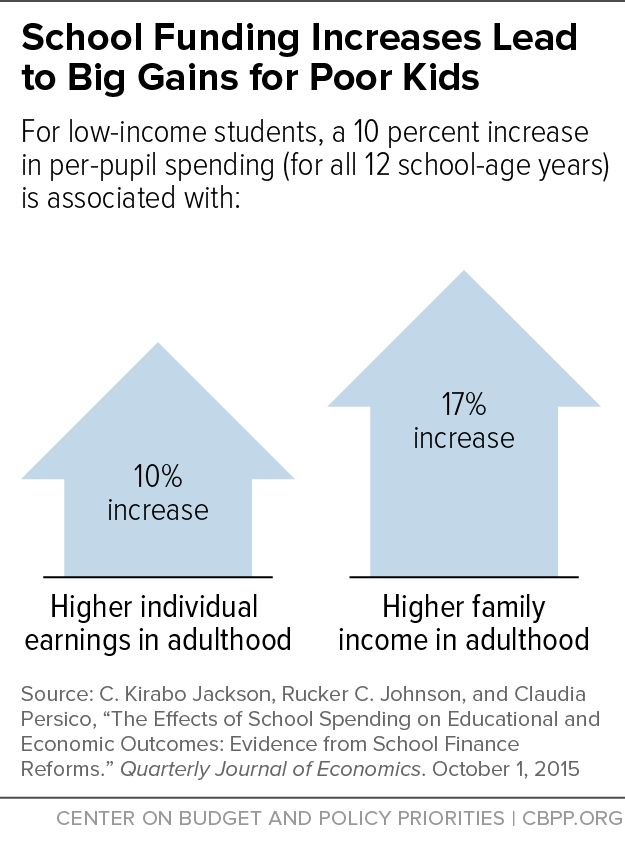
May 16, 2018 12:00:00 AM
 In contrast, school districts that cut funding risk lower high school graduation rates and lower test scores. For example, for every 10 percent in spending cuts that school districts made in the aftermath of the Great Recession, graduation rates fell by 2.6 percentage points, according to
one recent study. Investment in K-12 schools is crucial for communities to thrive and the economy to offer broad opportunity. State lawmakers play an important role in improving these investments, and state courts are critically important when those lawmakers fail—as too many have done in recent years—to make education funding a top priority.
In contrast, school districts that cut funding risk lower high school graduation rates and lower test scores. For example, for every 10 percent in spending cuts that school districts made in the aftermath of the Great Recession, graduation rates fell by 2.6 percentage points, according to
one recent study. Investment in K-12 schools is crucial for communities to thrive and the economy to offer broad opportunity. State lawmakers play an important role in improving these investments, and state courts are critically important when those lawmakers fail—as too many have done in recent years—to make education funding a top priority.
Cortney Sanders joined the Center on Budget and Policy Priorities in 2017 as a State Policy Fellow for the State Fiscal Project (SFP). Prior to joining SFP, she worked for Poverty Solutions in Ann Arbor, Michigan, and the Aspen Institute as a William Randolph Hearst Fellow. Sanders’ research experience includes topics on racial equity, social welfare reform, voting rights, tax and economic policy and education equity. She has used her expertise in diversity, equity and inclusion to analyze policies affecting people of color and economically disadvantaged communities. Sanders holds a bachelor’s degree in Government from the University of Texas, Austin and a Master of Public Policy from the University of Michigan, Ann Arbor.
Few issues in education spark more tension and debate than standardized testing. Are they a tool for equity or a burden on students? A necessary check on school systems or a flawed measure of...
Charter schools are public schools with a purpose. Operating independently from traditional school districts, they're tuition-free, open to all students, and publicly funded—but with more flexibility...
Despite the benefits of a diverse teaching force, prospective teachers of color fall out of our leaky preparation pipeline at every stage: preparation, hiring, induction, and retention. Here’s what...
Ed Post is the flagship website platform of brightbeam, a 501(c3) network of education activists and influencers demanding a better education and a brighter future for every child.
© 2020-2025 brightbeam. All rights reserved.
Leave a Comment